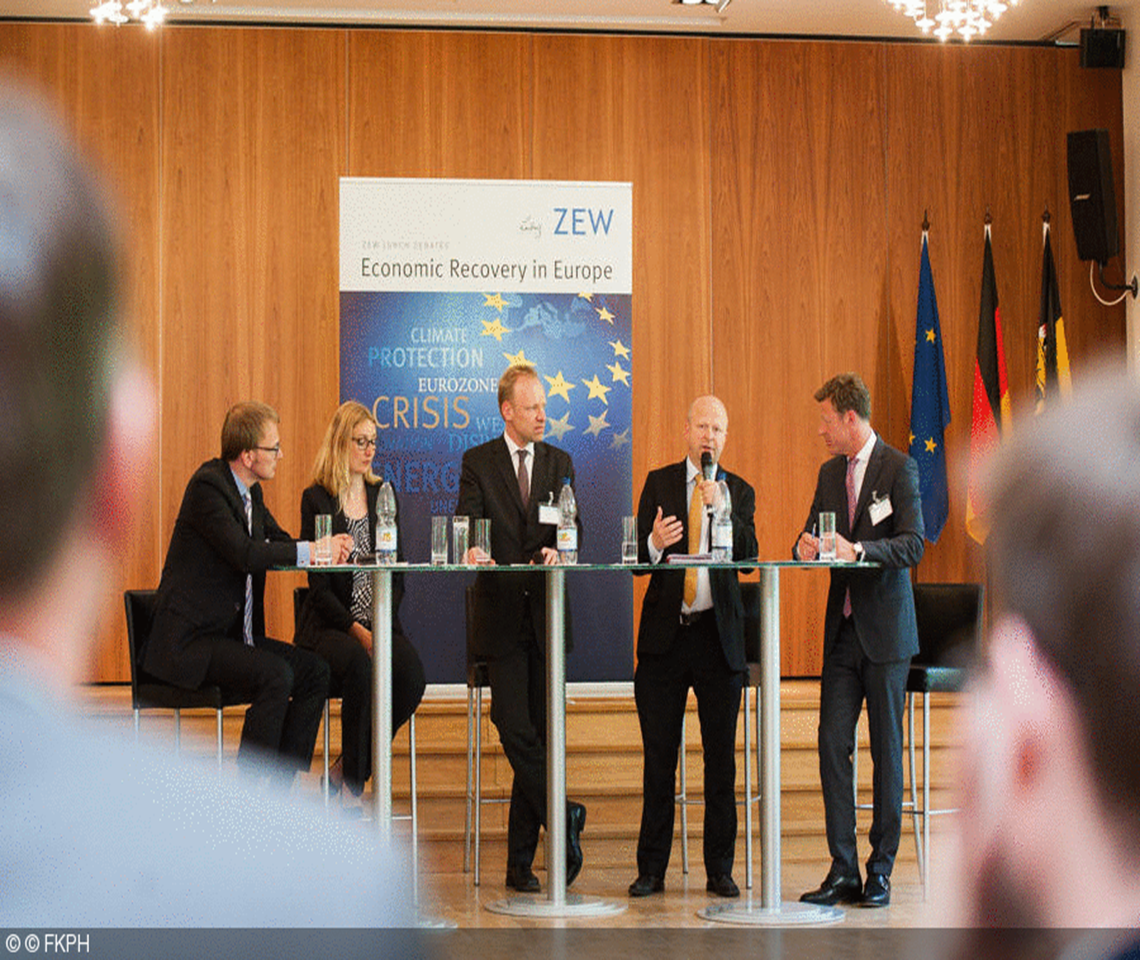ZEW Lunch Debate in Brussels - "MaTax Policy Meeting" Special Edition Addresses Corporate Tax Avoidance
ZEW Lunch Debate in BrusselsAggressive tax planning and tax avoidance by multinationals are a blessing for companies - and a curse for national tax authorities and tax payers. How can large international companies be taxed adequately in Europe? What lessons can we learn from scandals such as "LuxLeaks", and what is the actual loss for public coffers if companies avoid taxes by choosing low-tax locations? These questions were discussed at the "MaTax Policy Meeting" special edition of the ZEW Lunch Debates at the Representation of the State of Baden-Württemberg to the European Union in Brussels on June 16, 2015.
In her talk, Professor Katharina Finke, deputy head of the Research Department "Corporate Taxation and Public Finance" at the Centre for European Economic Research and assistant professor of accounting and taxation at the University of Mannheim, made clear that multinationals are extremely mobile due to their organisational structures. She also argued that tax regimes in the EU, which vary from Member State to Member State, further encourage aggressive tax planning.
Large corporations are internationally flexible. Moreover, they dispose of a great number of intangible assets such as patents, which are difficult to quantify from the perspective of fiscal legislation. Finke explained that it is usually not the multinational group as a whole that is being taxed, but rather its individual units. "That is what makes tax avoidance possible in the first place," she said. According to Professor Finke, aggressive tax planning by companies does indeed pose a problem, but in addition to that, national tax regimes seem unable to manage the high level of corporate mobility. As a result, the treasury loses tax revenues.
At the panel discussion, Katharina Finke was joined by Thomas Hemmelgarn, head of sector at the European Commission's Directorate-General for Taxation and Customs Union, Michael Theurer MEP, vice-chair of the FDP delegation in the European Parliament and co-rapporteur of the special committee of inquiry into the LuxLeaks tax affair, and Berthold Welling, head of the tax and financial policy unit of the Federation of German Industries (BDI) and executive board member of the Berlin Institute for Finances and Taxation (ifst). ZEW President Professor Clemens Fuest chaired the debate with about 60 guests, among them staff members of the EU Commission, MEPs, and company representatives.
Thomas Hemmelgarn spoke about the Commission’s position, assuming that international agreements on tax avoidance, e.g. the 2013 Action Plan against Base Erosion and Profit Shifting (BEPS) of the Organisation for Economic Co-operation and Development (OECD), have reached their limits. He explained that intellectual property, the basis for corporate R&D activities and, ultimately, corporate profits, can easily and quickly be shifted from one country to the next. That, in turn, makes it difficult to determine where corporate profits have actually been generated - and where they can be taxed effectively.
Berthold Welling conceded that the OECD's BEPS concept needs a broader data base to determine the effectiveness of the Action Plan in the first place. But what is of prime importance, he said, is a set of acceptable rules for economic heavyweights such as the US, Europe, and emerging markets like China and India. According to Wellinger, however, this is not primarily the EU Commission’s task, but that of national governments. They should carefully review whether existing laws are in need of reform with regard to adequate tax control.
Michael Theurer gave an overview of the first results of the European Parliament's LuxLeaks special committee of inquiry, regarding the question of the determinants of fair tax competition. His conclusion: Europe needs a common and binding tax base for all Member States, as exemplified by the Swiss tax scheme, which allows fair competition between the cantons.
All panellists agreed on one point: the need for improved transparency - not only when it comes to multinationals' reported profits, but also regarding national tax regimes. In the subsequent Q&A session, the audience contributed a number of comments and questions: What is the role of increasing asset concentration in the hands of a few concerning corporate taxation? How can companies be forced to assume a minimum of fiscal responsibility? Is the issue of tax avoidance reflecting a deficit in democracy? - Aspects that went beyond the scope of the debate, but confirmed that the topic will remain on the agenda for long.
More information about the ZEW Lunch Debates and forthcoming events in this series
